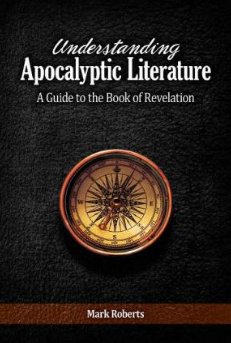 With Understanding Apocalyptic Literature: A Guide to the Book of Revelation, Mark Roberts has provided an outstanding tool to Bible students. I finished it yesterday as one of several books I’m reading in preparation to teach through Revelation next year. I have thousands of pages of Revelation commentary in my library, but this little 104-page work has done more to sharpen my overall approach to the last book of the Bible than any other.
With Understanding Apocalyptic Literature: A Guide to the Book of Revelation, Mark Roberts has provided an outstanding tool to Bible students. I finished it yesterday as one of several books I’m reading in preparation to teach through Revelation next year. I have thousands of pages of Revelation commentary in my library, but this little 104-page work has done more to sharpen my overall approach to the last book of the Bible than any other.
Understanding Apocalyptic Literature is not a verse-by-verse commentary on Revelation.
Apocalypse is a word that means a “revelation, disclosure” or “disclosing secrets belonging to the last days.” While realizing apocalyptic literature is more than just an ordinary revelation of God’s will, it can be understood if we understand how this genre works. The very purpose of this genre is to disclose and reveal! If we can gain even an elementary appreciation for the style of writing, if we can get in the author’s mind and understand why someone would write an apocalypse, and if we can compare what we have in Scripture to the common apocalypses that circulated in New Testament times, we can make right use of the Bible’s apocalyptic literature because we will be using apocalyptic as it was intended to be used. That is the goal of this book. (19)
Chapters include:
- What Makes Apocalyptic Literature Apocalyptic?
- Why Apocalyptic?
- What Would Revelation’s Readers Expect?
- What Apocalyptic Does Not Do
- Imagery in Apocalyptic Literature
- Misusing Apocalyptic
It’s no secret that references to non-inspired literature like 4 Ezra, 2 Baruch, The War Scroll, or The Apocalypse of Weeks often make the eyes of the best students of the Bible quickly glaze over. Roberts effectively introduces and provides just enough relevant excerpts from these historical works to help us “get in the minds” of a first-century audience. “Any attempt to understand apocalyptic literature begins with comprehending the apocalyptic mind set” (27). By leading us on a tour of the beauty, breadth, and power of apocalyptic literature, Roberts also demonstrates how our appreciation of the Old Testament books of Ezekiel, Daniel, and Zechariah can be enhanced by an accurate grasp of this ancient genre.
The reader does not just understand truth from apocalyptic in his or her head. The reader feels its message in his or her very heart and soul. (50)
Roberts shows us how to feel the apocalyptic message and “see” Revelation in a manner that is faithful and fruitful. By employing modern references to the likes of Star Wars, Shrek, and The Princess Bride, he does so in a very accessible, easy-to-understand way. You don’t have to be a Biblical scholar with a massive library and a fancy doctorate degree hanging on your wall in order to profit from this book.
If you plan on reading Revelation at some point in 2015, do yourself a favor. Get a copy of Understanding Apocalyptic Literature, read it first, then read the last book of the Bible and watch as Revelation comes alive like never before.
Let its incredible scenes indelibly stamp this truth deep within: Jesus wins! (pg 95)
Understanding Apocalyptic Literature is available from One Stone for $6.49.